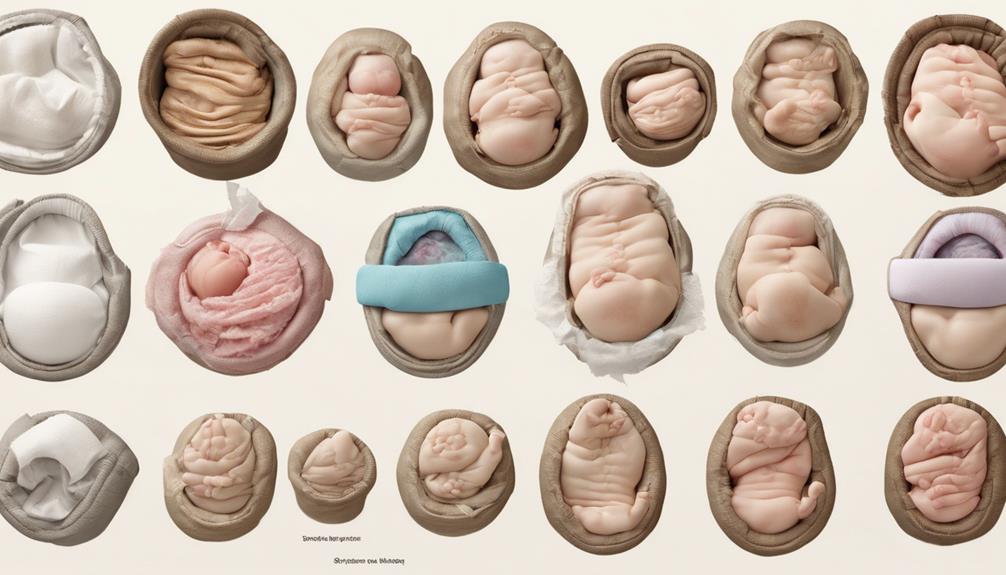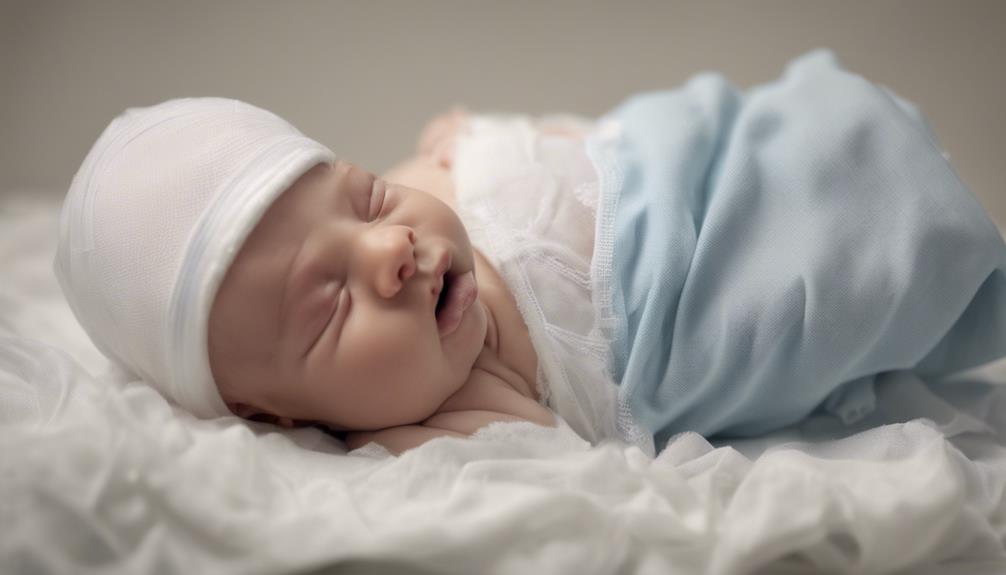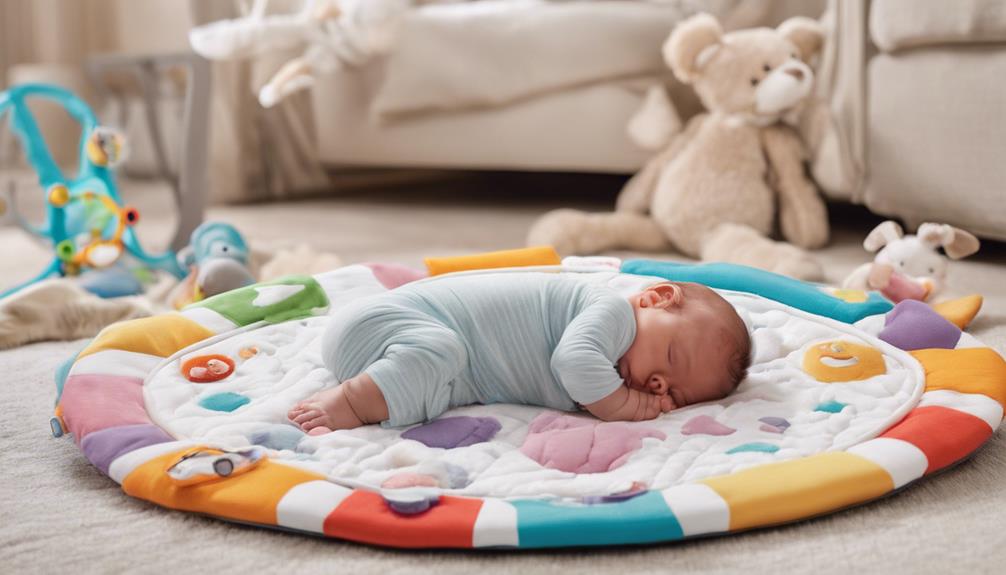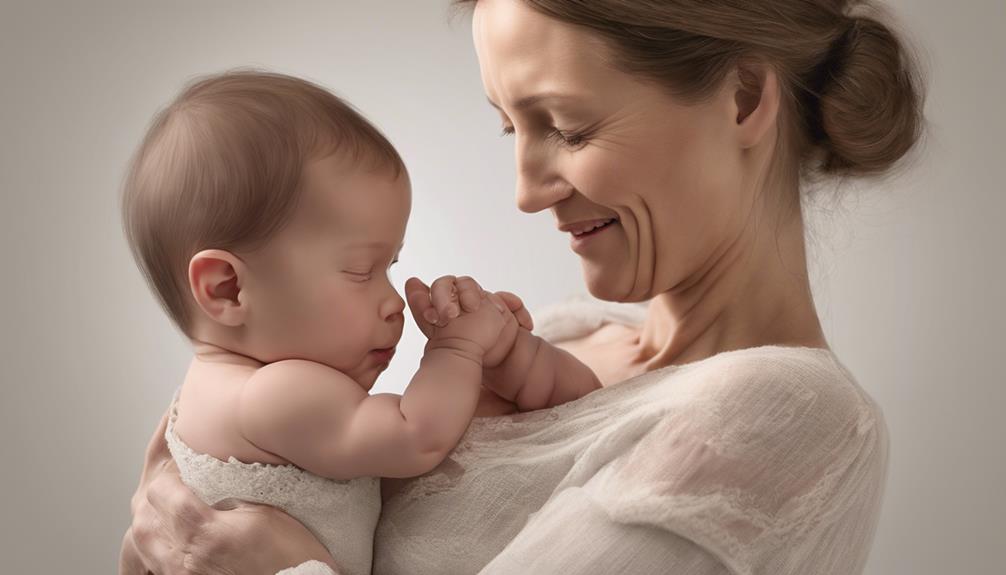As a new parent, you might be surprised by the frequency of your newborn's hiccups, but understanding the causes behind this common occurrence is key to providing relief.
From the innocent quirk of an immature digestive system to possible external triggers, the complexities of newborn hiccups can be intriguing.
By unraveling the mystery behind these sudden spasms, you can gain valuable insights into how to ease your little one's discomfort and foster a peaceful environment for both of you.
Key Takeaways
- Newborn hiccups stem from diaphragm immaturity and swallowing air
- Feeding habits, like speed and air intake, influence hiccups
- Environmental factors like temperature changes and smoke can trigger hiccups
- Managing hiccups includes burping, gentle rubbing, pacifiers, and upright post-feeding position
Common Triggers for Newborn Hiccups
When considering the common triggers for newborn hiccups, the immature development of the diaphragm muscle emerges as a primary factor. In newborns, the diaphragm muscle responsible for breathing is still developing, leading to occasional spasms that result in hiccups.
Additionally, the act of swallowing air while feeding or crying can also contribute to the onset of baby hiccups. These swallowed air bubbles can irritate the diaphragm, triggering the reflex actions that manifest as hiccups.
Furthermore, rapid temperature changes, especially in the stomach area, can provoke hiccups in newborn babies. The body's response to sudden temperature shifts may lead to diaphragm spasms, causing hiccups to occur.
Premature babies, who often have immature reflexes and coordination challenges, may experience hiccups more frequently due to the underdeveloped nature of their diaphragm muscles. Understanding these common triggers for newborn hiccups can help caregivers alleviate discomfort and support the baby during these episodes.
Impact of Feeding on Hiccups
The impact of feeding habits on newborn hiccups can be significant. Feeding too quickly or overfeeding can cause stomach distention, triggering hiccups. Additionally, swallowing air during feeding is another factor contributing to hiccups in newborns. Bottle-fed babies may experience more hiccups than breastfed infants.
The temperature of the milk or formula can also play a role in causing hiccups. Creating a calm and relaxed feeding environment is vital to reducing the likelihood of newborn hiccups. Ensuring a steady feeding speed, monitoring the volume of milk, and minimizing air intake can help prevent hiccups.
Physiological Reasons for Hiccups
Due to the immature development of the diaphragm and nerves controlling breathing, newborn hiccups are often attributed to physiological factors. The diaphragm's twitching or spasms may trigger hiccups in babies, especially during feeding or after swallowing air. These hiccups are considered a normal physiological response and are typically not a cause for concern. The frequency and duration of hiccups in newborns can vary but generally decrease as the baby grows and the diaphragm matures.
Babies experience hiccups due to the immature development of the diaphragm and nerves.
Hiccups may occur during feeding or after swallowing air.
Newborn hiccups are considered normal and usually subside as the baby grows.
The frequency and duration of hiccups tend to decrease as the diaphragm matures.
Environmental Factors and Hiccups
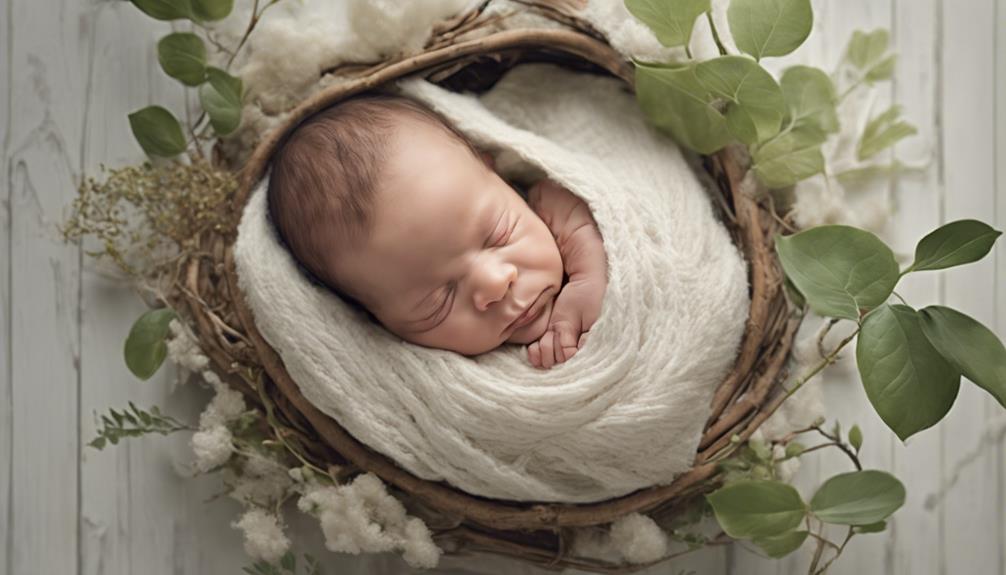
Exposure to various environmental factors can act as triggers for newborn hiccups. Sudden changes in environmental temperature, such as overheating or being too cold, are known culprits. Additionally, exposure to smoke, whether from cigarettes or other sources, can irritate your little one's delicate system and lead to hiccups. Environmental irritants like strong odors or air pollutants may also play a role in causing those pesky hiccups. To create a more secure environment for your baby, make sure the room is well-ventilated and free from potential triggers like cigarette smoke or strong scents. Here's a table summarizing the environmental factors that can contribute to newborn hiccups:
| Environmental Factor | Impact on Newborn Hiccups |
|---|---|
| Changes in temperature | Overheating or being too cold |
| Exposure to smoke | Irritation and hiccups |
| Environmental irritants | Strong odors or air pollutants |
| Comfortable environment | Reduction in hiccups |
Managing and Soothing Newborn Hiccups
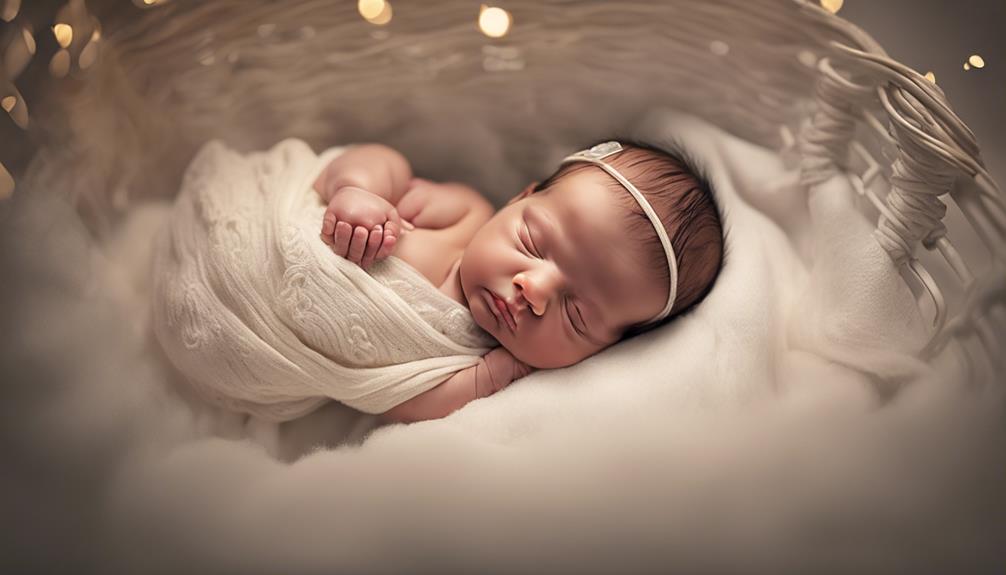
When soothing and managing newborn hiccups, employing techniques like burping during and after feedings can effectively release trapped air and reduce hiccup occurrences.
Gentle back rubbing while holding your baby upright can also aid in soothing and stopping hiccups.
Offering a pacifier or letting your baby suck on something can help relax the diaphragm and alleviate hiccups.
Keeping your baby in an upright position for a short period after feeding can prevent stomach distention and subsequent hiccups.
Engaging in calming activities like gentle rocking or swaying can help distract your baby and ease hiccups.
Frequently Asked Questions
What Are the Reasons for Hiccups in Newborns?
You hiccup because your diaphragm gets tickled, causing your vocal cords to snap shut quickly. Your developing nerve control and reflexes make newborns prone to hiccups. They might help your brain grow too. So, hiccup away!
Is There a Scientific Explanation for Hiccups?
You think there might be a scientific explanation for hiccups? Well, here's the deal: involuntary diaphragm spasms cause those pesky sounds. It's all about nerve signals gone wild, playing a quirky tune.
When Are Baby Hiccups a Concern?
When baby hiccups persist, are accompanied by vomiting or feeding issues, disrupt sleep, or cause distress, they warrant monitoring. Consult a pediatrician if hiccups become excessive, frequent, or impact your baby's well-being. Tracking symptoms is key.
How Do I Stop My Baby From Having Hiccups After Feeding?
To stop your baby from having hiccups after feeding, burp them, adjust feeding positions, feed smaller amounts frequently, engage in gentle play or movement, and guarantee a calm environment. These actions can help reduce hiccups and discomfort.
Conclusion
To summarize, understanding the causes of newborn hiccups can help parents navigate and manage this common occurrence effectively. By addressing common triggers, feeding impact, physiological reasons, and environmental factors, parents can proactively soothe their baby's hiccups.
Remember, staying informed and implementing practical remedies like positioning and pacifiers can alleviate hiccups and provide comfort to your little one. Stay vigilant, stay informed, and soothe those hiccups away!

